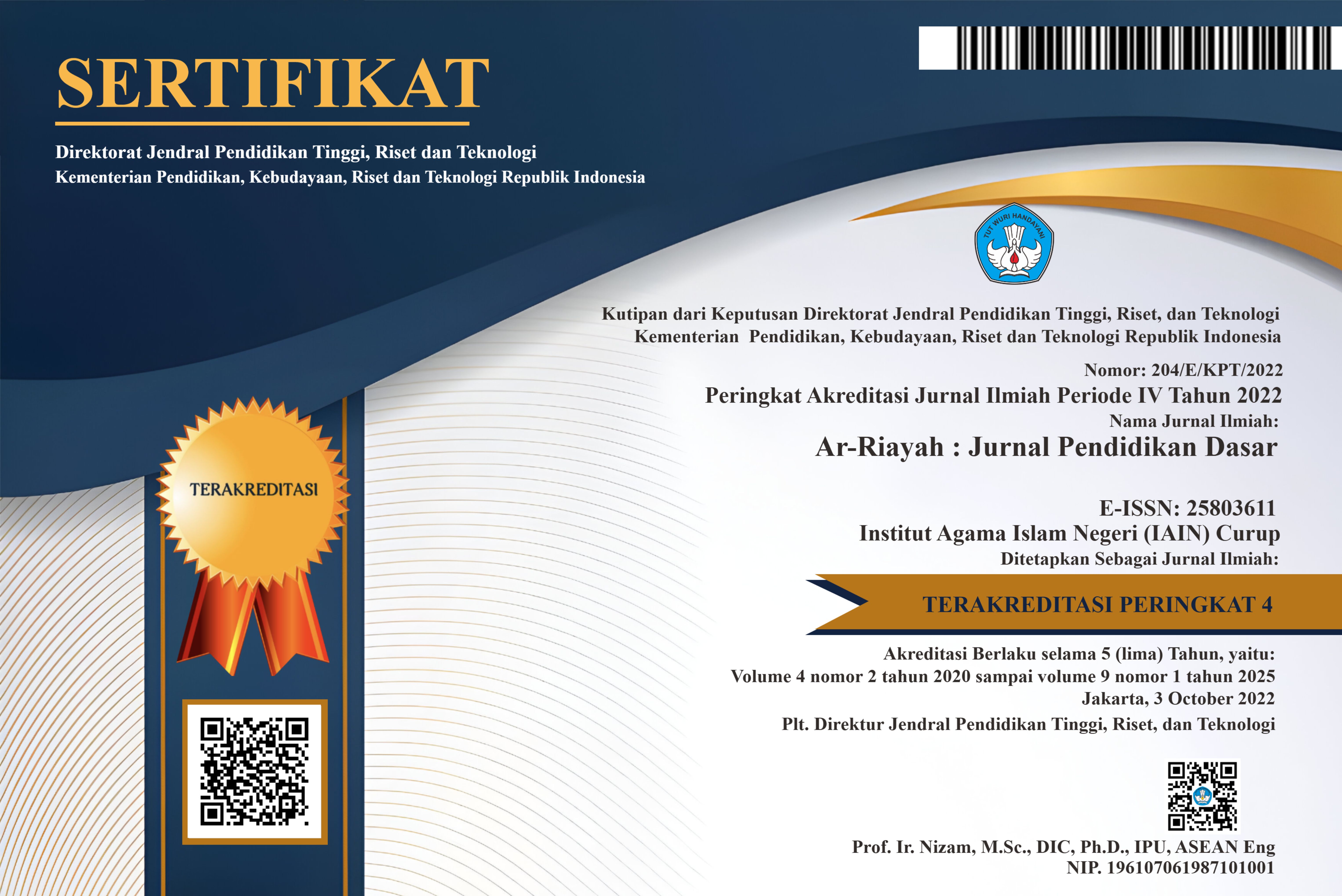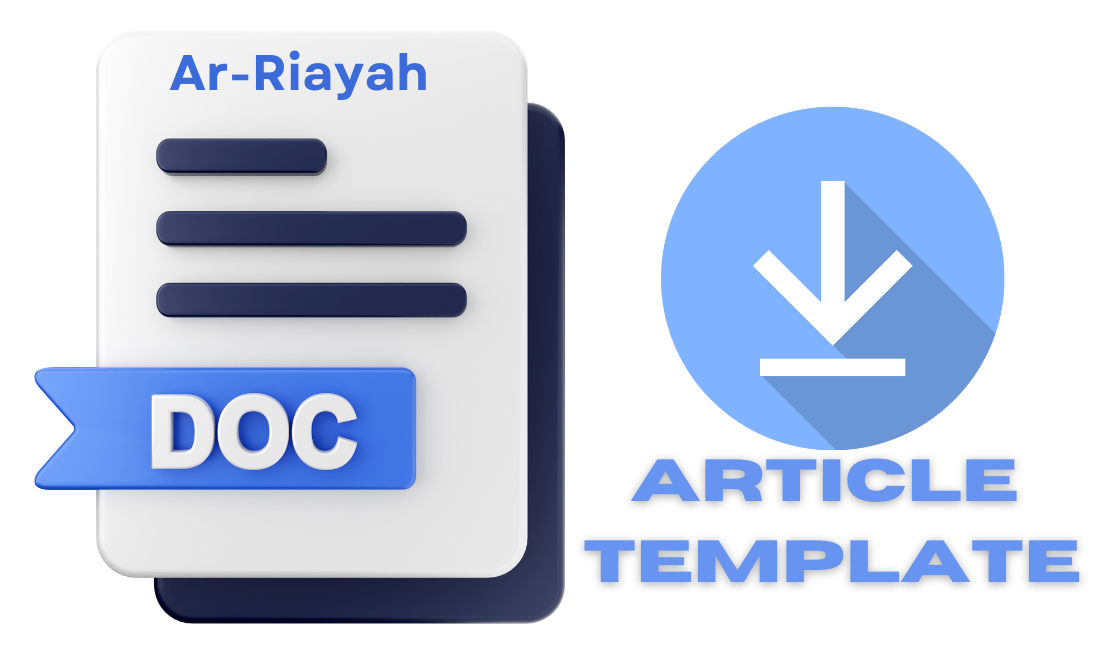The Influence of Monopoly Media on The Students’ Interest in Learning Process of Elementary School
DOI:
https://doi.org/10.29240/jpd.v9i1.12837Keywords:
Learning Interest, Monopoly Media, Systematic Literature ReviewAbstract
Teachers, as facilitators, are required to create learning activities that involve active student participation, which encourages the development of a learning interest. The lack of media use in learning activities causes low student interest in learning. Monopoly media is one of the learning media that can attract students' attention to actively engage in the learning process his study examines the influence of monopoly media in increasing the learning interest of elementary school students using the Systematic Literature Review method through the Publish and Perish and Google Scholar platforms. This study uses 19 recent research articles, which were selected based on predetermined inclusion and exclusion criteria. The analysis method used is qualitative descriptive. The research results show that the monopoly media is effective in increasing the learning interest of elementary school students. Monopoly can stimulate students to participate actively, the interactive appearance of monopoly, and attracts students' interest in the learning process. Monopoly media is expected to be developed by using models, methods, or other approaches adapted to the learning needs of students.
Downloads
References
Alika, Ornella, and Elvira Hoesein Radia. “Development of Learning Media Based on Cross Puzzle Game in Science Learning to Improve Learning Outcomes.” Jurnal Penelitian Pendidikan IPA 7, no. 2 (2021): 173–77. https://doi.org/10.29303/jppipa.v7i2.667.
Anjaswuri, Fitri, Indri Yani, Nurlinda Safitri, and Ilmi Zajuli Ichsan. “Development of Monopoly Media Based on Culturally Responsive Teaching on an Ecosystem Theme for Elementary School Students.” Jurnal Penelitian Pendidikan IPA 9, no. 12 (2023): 10596–601. https://doi.org/10.29303/jppipa.v9i12.5330.
Aprilistiandita, Krisca Renanda, and Muhammad Reyhan Florean. “Analisis Minat Belajar Siswa Melalui Media Monopoli Keragaman Suku (MORASU) Pada Tema 7 Sub Tema 1 Kelas IVB Di SDN 2 Surodakan Kabupaten Trenggalek.” Elementa : Jurnal PGSD STKIP PGRI Banjarmasin 1 No.3 (2022): 32–38. https://doi.org/10.33654/pgsd.
Ardhani, Azizah Dwi, Mohammad Liwa Ilhamdi, and Siti Istiningsih. “Pengembangan Media Pembelajaran Berbasis Permainan Monopoli Pada Pelajaran Ilmu Pengetahuan Alam (IPA) Kelas IV SD.” Jurnal Pijar MIPA 16, no. 2 (2021): 170–75. https://doi.org/10.29303/jpm.v16i2.2446.
Dirgantara, Cahya Sukma, Nurdinah Hanifah, and Dadan Nugraha. “Creation of MOPOKAR (Card Monopoly) to Enhance Learning Skills in Comparing The Social Conditions of Indonesia and Neighboring Countries in Grade 6.” Scaffolding: Jurnal Pendidikan Islam Dan Multikulturalisme 6, no. 1 (2024): 89–108. https://doi.org/10.37680/scaffolding.v6i1.4161.
Dirgantara, Marvinda Rizki Dita, Sri Mulyani Endang Susilowati, and Putut Marwoto. “The Use of Monopoly Media to Improve Primary Student’s Critical Thinking Skills in Science Learning.” Journal of Primary Education 8, no. 3 (2019): 262–69. https://journal.unnes.ac.id/sju/index.php/jpe/article/view/26652.
Hardiansyah, Framz. “Snowball Throwing: A Method To Uplift Elementary School Students’ Responsibility on Environment.” AL-ISHLAH: Jurnal Pendidikan 14, no. 3 (2022): 3853–64. https://doi.org/10.35445/alishlah.v14i3.1966.
Hardiansyah, Framz, and Zainuddin. “The Influence of Principal’s Motivation, Communication, and Parental Participation on Elementary School Teachers’ Performance.” Al Ibtida: Jurnal Pendidikan Guru MI 9, no. 2 (2022): 319. https://doi.org/10.24235/al.ibtida.snj.v9i2.9936.
Istianah, Rizka, and Novi Setyasto. “Pengembangan Media Monopoli Berbasis Cerita Rakyat Jawa Untuk Meningkatkan Keterampilan Membaca Dan Menulis Aksara Jawa Kelas IV Sekolah Dasar.” Prima Magistra: Jurnal Ilmiah Kependidikan 4, no. 3 (2023): 437–50. https://doi.org/10.37478/jpm.v4i3.2946.
Kamelia, Fiki, and Desi Wulandari. “Development of Educational Monopoly Learning Media in Science Subjects to Improve Students Learning Outcomes.” Jurnal Penelitian Pendidikan IPA 11, no. 1 (2024): 44–56. https://doi.org/10.29303/jppipa.v10i9.7351.
Kusuma, Lalu Alfi Sandi, Muhammad Tahir, and Muhammad Sobri. “Pengembangan Media Pembelajaran Engklek Monopoli Berbasis Etnopedagogi Sasak Dalam Pembelajaran IPAS Kelas IV Di Sekolah Dasar Negeri 5 Banyumulek.” Jurnal Pendidikan, Sains, Geologi, Dan Geofisika 5, no. 3 (2024): 534–42.
Lestari, Ananda Dewi, and Ary Setya Budhi Ningrum. “Active Learning: Monopoly As A Media in Teaching Grammar for Eight Grader Students.” Journal of Languages and Language Teaching 10, no. 2 (2022): 256–65. https://doi.org/10.33394/jollt.v10i2.4894.
Pasaribu, Andar Gunawan, and Frainskoy Rio Naibaho. “Teachers’ Perceptions of Using Tiktok in Students’ Interest during the COVID-19 Pandemic.” Turkish Online Journal of Qualitative Inquiry 12, no. 9 (2021): 5769–76. https://www.researchgate.net/publication/358405525.
Puspitasari, Dina Sri, and Deasylina Da Ary. “Cultural Monopoly Game : Designing and Testing Game-Based Media for Intangible Cultural Heritage Learning in Elementary School.” Jurnal Pendidikan Progresif 14, no. 03 (2024): 1859–72. https://doi.org/10.23960/jpp.v14.i3.202412.
Rusmiaty, Evi, Helmia Tasti Adri, and Annisa Mawardini. “Development of Science Learning Media Monsains (Science Monopoly) in Human Imgestion System Materials for Elementary School.” Indonesian Journal of Social Research (IJSR) 2, no. 3 (2020): 218–23. https://doi.org/10.30997/ijsr.v2i3.67.
Saraswati, Sri, Roza Linda, and Herdini. “Development of Interactive E-Module Chemistry Magazine Based on Kvisoft Flipbook Maker for Thermochemistry Materials at Second Grade Senior High School.” Journal of Science Learning 3, no. 1 (2019): 1–6. https://doi.org/10.17509/jsl.v3i1.18166.
Sidauruk, Vioneta Gloria Stefanie, and Wahyudi. “Pengembangan Media Monopoli Tata Surya Dengan Model TGT Pada Pembelajaran IPAS Kelas VI Sekolah Dasar Untuk Meningkatkan Motivasi Belajar.” Pendas: Jurnal Ilmiah Pendidikan Dasar 9, no. 2 (2024): 319–27.
Syawaluddin, Ahmad, Sidrah Afriani Rachman, and Khaerunnisa. “Developing Snake Ladder Game Learning Media to Increase Students’ Interest and Learning Outcomes on Social Studies in Elementary School.” Simulation and Gaming 51, no. 4 (2020): 432–42. https://doi.org/10.1177/1046878120921902.
Trismayanti, Suci. “Strategi Guru Dalam Meningkatkan Minat Belajar Peserta Didik Di Sekolah Dasar.” Al-Ishlah: Jurnal Pendidikan Islam 17, no. 2 (2019): 141–58. https://doi.org/https://doi.org/10.35905/alishlah.v17i2.1045.
Yanti, Nuning Hardi, Henry Januar Saputra, and Catur Prasetiawati. “Peningkatan Minat Belajar Pendidikan Pancasila Berbantuan Media Monkatar Di SDN Panggung Lor.” Seminar Nasional Pendidikan Profesi Guru Universitas, 2023, 1814–23.
Yusrizal, Ibnu Hajar, and Samsidar Tanjung. “Analysis of Elementary School Teachers’ Ability in Using ICT Media and Its Impact on the Interest to Learn of Students in Banda Aceh.” Budapest International Research and Critics in Linguistics and Education (BirLE) Journal 2, no. 3 (2019): 37–49. https://doi.org/10.33258/birle.v2i3.352.
Downloads
Published
How to Cite
Issue
Section
Citation Check
License
Copyright (c) 2025 Nailil Muna Asshalikha, Ngabiyanto, Ellianawati, Bambang Subali, Nuni Widiarti

This work is licensed under a Creative Commons Attribution-NonCommercial-ShareAlike 4.0 International License.
Authors who publish with Ar-Riayah: Jurnal Pendidikan Dasar agree to the following terms:
Authors retain copyright and grant the journal right of first publication with the work simultaneously licensed under a Creative Commons Attribution-NonCommercial-ShareAlike 4.0 International License (CC BY-NC-SA 4.0) that allows others to share the work with an acknowledgment of the work's authorship and initial publication in this journal.
Authors are able to enter into separate, additional contractual arrangements for the non-exclusive distribution of the journal's published version of the work (e.g., post it to an institutional repository or publish it in a book), with an acknowledgment of its initial publication in this journal.
- Authors are permitted and encouraged to post their work online (e.g., in institutional repositories or on their website) prior to and during the submission process, as it can lead to productive exchanges, as well as earlier and greater citation of published work (See The Effect of Open Access).










